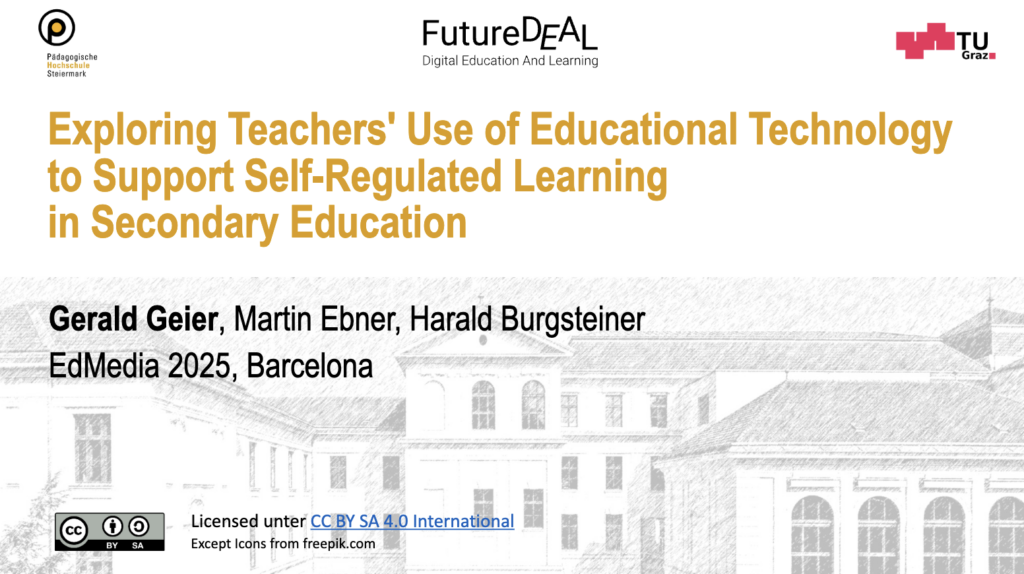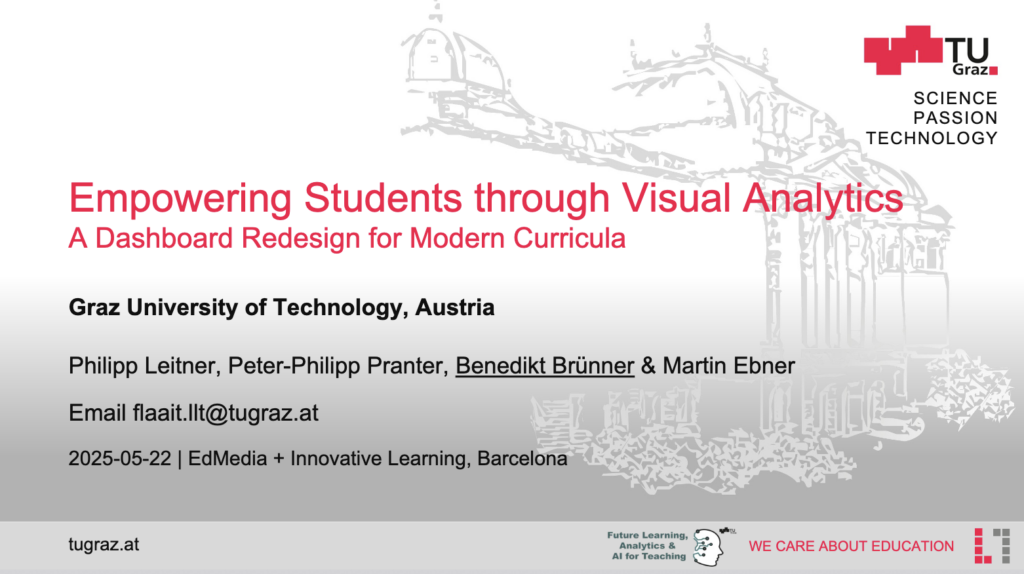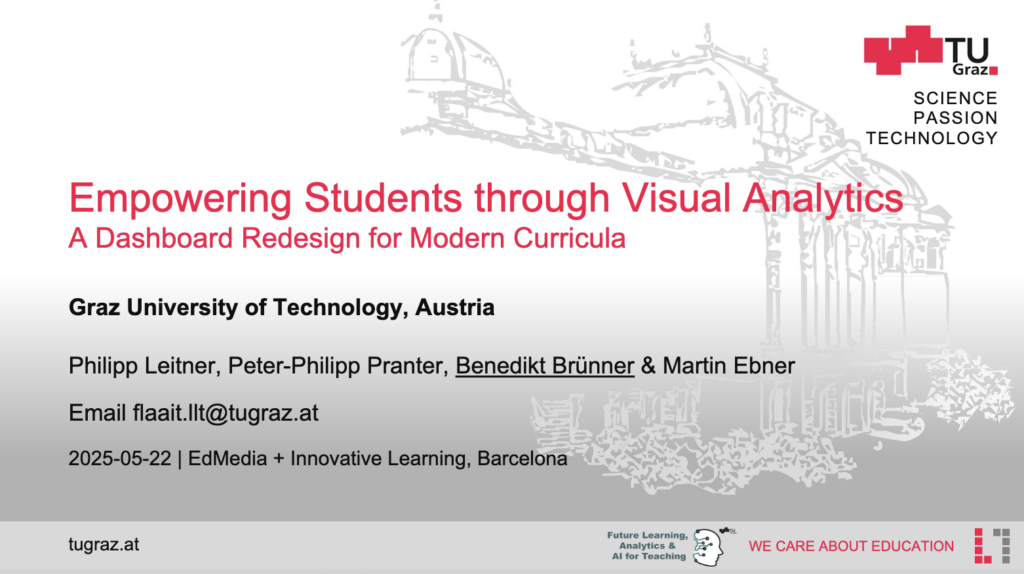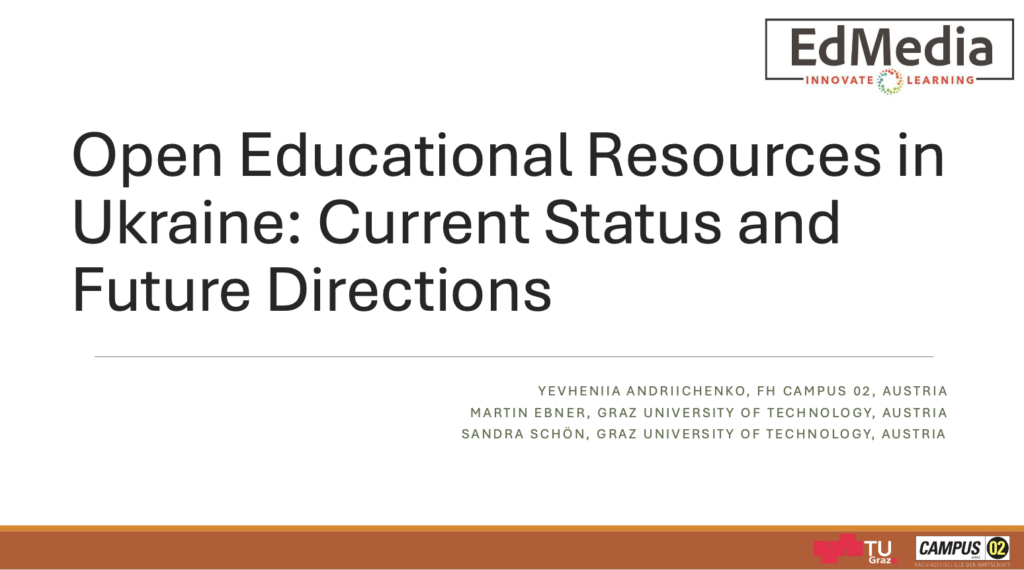Our paper, „Empowering Students through Visual Analytics: A Dashboard Redesign for Modern,“ which was awarded at this year’s EDMedia conference, is now available online.
Abstract:
Graz University of Technology originally launched a study progress dashboard in 2020 to help students monitor their academic progress and better understand their degree structures. In response to systematic changes in the university’s academic data modeling and the phasing out of legacy curricula between 2022 and 2024, the dashboard underwent a complete technical and conceptual overhaul. This paper presents the redesigned tool, which now features a modular, service-oriented architecture, real-time integration of current curricula, and enriched analytics combining student records with historical performance data. Supporting all Bachelor’s and Master’s programs, the updated dashboard continues to prioritize usability, transparency, and student autonomy. Drawing on student feedback and us-age data collected since the dashboard’s introduction, we analyze patterns of adoption and engagement, highlight lessons learned, and offer practical guidance for institutions aiming to implement adaptable, student-centered learning analytics systems.
[draft @ researchgate]
[full paper @ conference website]
Reference: Leitner, P., Pranter, P.P., Brünner, B. & Ebner, M. (2025). Empowering Students through Visual Analytics: A Dashboard Redesign for Modern Curricula. In T. Bastiaens (Ed.), Proceedings of EdMedia + Innovate Learning (pp. 599-608). Barcelona, Spain: Association for the Advancement of Computing in Education (AACE). Retrieved May 28, 2025 from https://www.learntechlib.org/primary/p/226201/.




